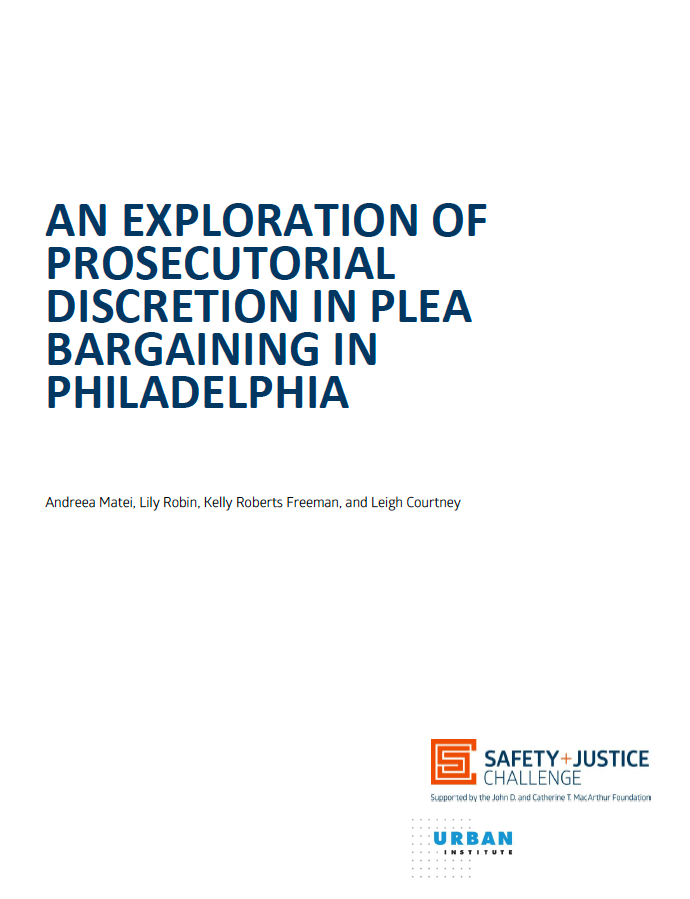Research Report
Plea Bargains Prosecutors November 29, 2022
An Exploration of Prosecutorial Discretion in Plea Bargaining in Philadelphia
As we have come to reckon with our nation's overreliance on carceral punishment and the mass incarceration of people of color, particularly Black people, experts are turning to a key system point that is the primary method for resolving most criminal cases: plea bargaining. Plea bargaining involves negotiation between a prosecutor and, often, a defense provider on behalf of their client. Prosecutors hold a lot of discretion over how to proceed regarding plea bargains, including whether to offer a plea agreement, when to do so, and what they wish to offer. Despite the wide use of plea bargaining, little is known about the practice, largely because it happens outside of public view and little is documented by the key actors involved—prosecutors.
To better understand prosecutorial discretion in plea bargaining, the Urban Institute was funded by the MacArthur Foundation through the Safety and Justice Challenge (SJC) Research Consortium, which is managed by the CUNY Institute for State and Local Governance (ISLG), to conduct a study on plea bargaining policies, practices, and outcomes. The Philadelphia District Attorney's Office (DAO) agreed to partner with Urban to shed light on the inner workings of plea negotiations and how they are viewed by different parties involved in the process, including attorneys and people who accept pleas. The DAO's partnership provided a rare opportunity to learn more about prosecutorial decisionmaking in plea bargaining in a single office and how this could inform policy and practice more broadly. This unparalleled look into prosecutorial decisionmaking owes to the forthrightness of the assistant district attorneys (ADAs) we interviewed and surveyed. The DAO's cooperation made it possible for Urban's research team to read policies on plea offers, analyze a deidentified sample of the office's case files, and hear from the ADAs to learn more about their decisionmaking during plea negotiations. Notably, this report is an exploration of discretion in plea bargaining in one office, not an impact evaluation of policies.
In this report, we discuss findings from our exploratory single-site study, in which we used qualitative and quantitative data to answer research questions of interest. Our activities included a policy review; analysis of administrative data from 2018 to 2021; interviews with 11 Philadelphia ADAs, 9 defense providers, and 5 people who accepted pleas; a case file review of 115 cases; and a survey of 65 ADAs. Because prosecutorial discretion in plea bargaining is not well documented in data, the best way to learn about discretion is by speaking with prosecutors; thus, this report focuses primarily on our qualitative findings. We organized our findings by three main topics: policies and goals of plea bargaining, trends in plea offers and outcomes, and decisionmaking and perceptions of key actors. We end the report with a discussion of policy implications.
